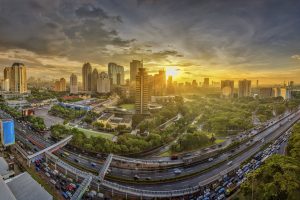Tomorrow marks the introduction of a restrictive new set of internet regulations in Indonesia, which activists claim will drastically tighten the government’s control over the online sphere in Southeast Asia’s most populous country.
Under new regulations issued by Indonesia’s Ministry of Communication and Information Technology in November 2020, social media and internet platforms including Google, Facebook, Twitter, YouTube, and TikTok, will be required to hand over user data and comply with government content moderation orders.
Ahead of the deadline, the search giant Google told BenarNews that it would comply with the regulations. “We are aware of the requirement to register as per relevant regulations, and will take appropriate action to comply,” an Indonesian representative for the news agency, which also cited a government official as stating that other leading platforms, including TikTok, had complied.
The government claims that the regulation, first aims to protect domestic users from prohibited content, which is defined as anything that violates laws, causes public unease, or disrupts public order. It will apply to all companies that provide online services, engage in online businesses, or whose online platforms are used in Indonesia, including some of the world’s largest tech companies.
According to the regulation, which is formally known as Ministerial Regulation 5 (MR5), these service providers are required to comply with most content removal orders within 24 hours. In the case of urgent takedown requests, such as those involving terrorism, child sexual abuse, and content that causes “unrest in society or disturbs public order,” the mandated compliance deadline is just four hours.
MR5 will also grant the government the power to fine internet and social media platforms that fail to comply with the rules. Platforms that repeatedly fail to comply with government requests could be blocked in Indonesia; their local staff could also face criminal sanctions.
Needless to say, the new regulations have been roundly condemned by free speech advocates. Writing in The Diplomat today, Michael Caster of the free speech advocacy group ARTICLE 19 argued that the regulation’s combination of narrow compliance time frames, vague definitions, and punitive intent made it “one of the most repressive internet governance regimes in the world.”
Once it goes into effect, Caster wrote, it would worsen a nation that has seen its internet freedom “steadily decreasing over the last five years.” He added, “The implementation of these internet regulations risks plunging Indonesia into a free expression crisis.” The advocacy group Human Rights Watch has described MR5 as “deeply problematic, granting government authorities overly broad powers to regulate online content, access user data, and penalize companies that fail to comply.”
The regulation is just the latest sign of a Southeast Asian nation seeking to extend its control over social media platforms that have become such a prominent part of the region’s social and political life. The region includes four of the 10 nations with the largest Facebook user bases in the world; Indonesia boasts the world’s third-largest.
There are legitimate concerns about the extent to which the region’s politics have been distorted by a flood of misinformation and disinformation, to say nothing of the scourges of child sex abuse images and other toxic content. But given Southeast Asian governments’ equivocal views of free expression generally, it was perhaps no surprise that their solution to this issue would far overshoot its intended goal.

































